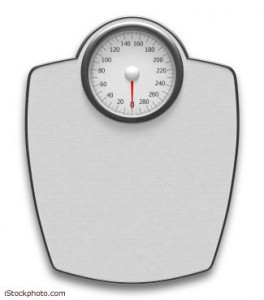Published: October 25, 2010
 Not getting enough sleep may possibly lead to obesity and even type-2 diabetes, a UniSA study has found.
Not getting enough sleep may possibly lead to obesity and even type-2 diabetes, a UniSA study has found.
Dr Siobhan Banks, Research Fellow with UniSA’s Centre for Sleep Research, says people who have chronically shortened sleep of just four or five hours’ per night are at greater risk of being overweight and having related health problems.
“Our study results have implications for people who only get four or five hours sleep a night, which is not uncommon for some busy people during the working week,” she says. [continue reading…]
Published: October 21, 2010

© istockphoto
Health care providers can play a key role in the fight against weight problems in young people
Over the last few decades, the dramatic rise in pediatric obesity rates has emerged as a public health threat requiring urgent attention. The responsibility of identifying and treating eating and weight-related problems early in children and adolescents falls to health care providers and other professionals who work with the child, according to Professor Denise Wilfley and colleagues from the Department of Psychiatry at Washington University School of Medicine in the US. Furthermore, the key to successful treatment is a team effort involving providers and parents. [continue reading…]

Image: iStockphoto
The more an older woman weighs, the worse her memory, according to new research from Northwestern Medicine. The effect is more pronounced in women who carry excess weight around their hips, known as pear shapes, than women who carry it around their waists, called apple shapes. [continue reading…]

Image: Creative Commons
n Canada, in stark contrast with the rest of the world, wealthy men increase their likelihood of being overweight with every extra dollar they make. The new study was led by Nathalie Dumas, a graduate student at the
University of Montreal Department of Sociology, and presented at the annual conference of the Association francophone pour le savoir (ACFAS).
“Women aren’t spared by this correlation, but results are ambiguous,” says Dumas. “However, women from rich households are less likely to be obese than women of middle or lower income.” [continue reading…]
 Not getting enough sleep may possibly lead to obesity and even type-2 diabetes, a UniSA study has found.
Not getting enough sleep may possibly lead to obesity and even type-2 diabetes, a UniSA study has found.


